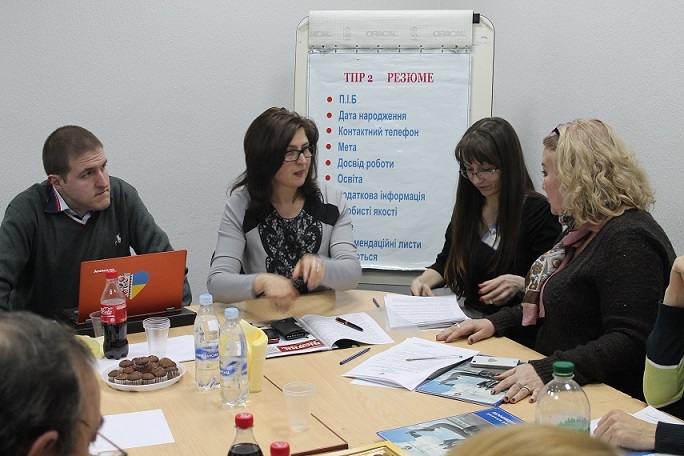Ministry of Social Policy of Ukraine, “Crimea_SOS” and International Organisation Stabilization Support Services launch a joint project for assisting the internally displaced persons in Ukraine.
In terms of this project, a Counselling Programme for Internally Displaced Persons is launched in Central, Eastern, Southern and Western regions of Ukraine. The programme is to be implemented in key cities and towns defined by “Crimea_SOS” and Ministry of Social Policy, the Government Portal reports.
The programme provides that regional counsellors will work as local reception camps for internally displaced persons and will promote the information exchange between the Ministry and the regions, solve the IDP’s disposition problems together with local councils and the police.
The Central Counsellors have the role of means of communication on IDP-related matters between regional and central level; support their colleagues at the Ministry in addressing requests from IDPs, social organisations and people from vulnerable social groups.
Mr.Pavlo Rozenko, Minister of Social Policy, noted that the Government has a long-lasting and steady partnership with both local and international social organisations in order to solve the problems of IDPs, and gave a positive estimation of the Programme.
As Mr.Brian Kerr, Project coordinator for Stabilization Support Services in Ukraine, first events within the framework of the Programme are scheduled for this August.
Note: Stabilization Support Services (SSS) is a Federally Incorporated Non Profit Organization with Head Office in Toronto. It utilizes the skills and expertise of key personnel in specialized areas including systems design, financial implementation, international logistics and operations, and cross sectoral programming capabilities.
The purpose of SSS is to provide support and services to help stabilize countries in crisis. These purposes include the following:
Procuring medical equipment to be used to help nations during times of conflict and post-conflict;
Providing medical support such as access to primary health care, and augmenting hospital facilities through the delivery and installation of portable field hospitals;
Providing medical training support services such as pre-hospital and trauma life-support training, training members of humanitarian mine clearance programs, and specialty advanced medical courses;
Providing equipment and training to assist with domestic security and counter-terrorism services including the provision of technology and training to deal with IEDs and EOD removal;
Post conflict support to humanitarian mine action interventions dealing with landmines and the explosive remnants of war (ERW);
Procurement and provision of high end non lethal support to security agencies working in complex emergency settings;
Providing technical solutions and encrypted communication support; and
Mentoring, training, and other forms of capacity-building support.


